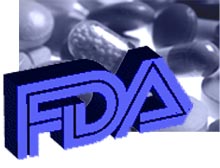Abigail Redux
 In latest development in the controversial Abigail Alliance decision, reported on previously here by Andrew Torrance, FDA on Monday, December 11, issued proposed new guidelines that would ease access to unapproved medications for certain patients and allow pharmaceutical companies to charge patients for the drugs in some cases. Under current FDA policy, individuals or groups of patients have limited access to experimental drugs under compassionate-use programs. Under the new guidelines, if adopted, FDA would clarify that drugs could be available during all stages of drug development, including Phase I testing. The proposal includes measures to allow patients to more easily access information about obtaining experimental drugs. The guidelines also would give scientists, small research organizations, and drug companies a method for calculating how much they can charge patients for the experimental drugs, ostensibly allowing them to make the treatments available to more people. The rules would allow a manufacturer to charge for the cost of making and providing an experimental drug, as long as it does not make a profit. The proposed guidelines are open to public comment for 90 days.
In latest development in the controversial Abigail Alliance decision, reported on previously here by Andrew Torrance, FDA on Monday, December 11, issued proposed new guidelines that would ease access to unapproved medications for certain patients and allow pharmaceutical companies to charge patients for the drugs in some cases. Under current FDA policy, individuals or groups of patients have limited access to experimental drugs under compassionate-use programs. Under the new guidelines, if adopted, FDA would clarify that drugs could be available during all stages of drug development, including Phase I testing. The proposal includes measures to allow patients to more easily access information about obtaining experimental drugs. The guidelines also would give scientists, small research organizations, and drug companies a method for calculating how much they can charge patients for the experimental drugs, ostensibly allowing them to make the treatments available to more people. The rules would allow a manufacturer to charge for the cost of making and providing an experimental drug, as long as it does not make a profit. The proposed guidelines are open to public comment for 90 days.Both sides of the debate have weighed in on FDA's proposal: Sidney Wolfe of Public Citizen's Health Research Group said, "It seems like it could be unleashing some floodgates that could do more harm than good for a number of people." Others believe the guidelines still are too restrictive. Frank Burroughs, president of the Abigail Alliance for Better Access to Developmental Drugs, said the proposal does not go far enough to ensure quick access to potentially lifesaving treatments.
Meanwhile, we await the D.C. Circuit's en banc review of the divided panel decision in Abigail Alliance, holding that terminally ill patients have a constitutional right to pre-FDA-approved experimental drugs.
Addendum: This week's The New Yorker magazine has a good article by Jerome Groopman, The Right to A Trial, summarizing the various issues in Abigail and other legal attempts (including a bill sponsored by Senator Brownback) to increase the availability of experimental drugs.












0 Comments:
Post a Comment
<< Home